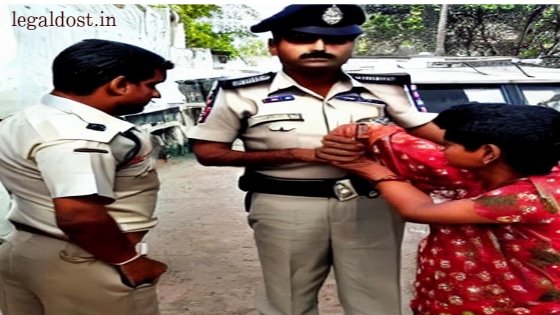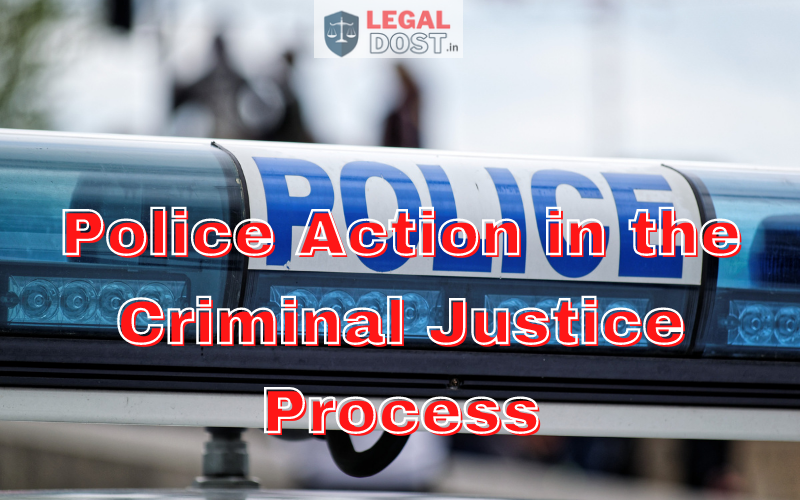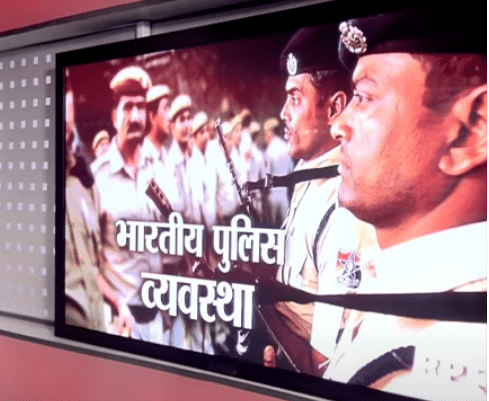Understanding the Consequences of Police Brutality and the Importance of Following Procedures During Arrests
As a citizen, it is important to know that any police officer who uses excessive force against an accused person in their custody can be held accountable for their actions. This includes the possibility of imprisonment, suspension, or termination from service. In addition to these consequences, victims of police brutality have the right to demand compensation for any mental, physical, or financial harm caused by the officer’s actions.
Importance of Following Proper Procedures During Arrests: The Code of Criminal Procedure lays out specific procedures that police officers must follow when arresting or detaining a person. These procedures are designed to ensure that the accused person’s fundamental rights are not violated during the process. Failure to follow these procedures can make the entire process of arrest or detention appear suspicious and can lead to serious legal consequences for the officer involved.
Legal Recourse for Victims of Police Brutality: If you are a victim of police brutality, it is important to know that you have legal recourse. You can approach the High Court under Article 226 of the Constitution to seek action against the officer responsible for the harm you have suffered. This allows victims to seek justice and hold the responsible parties accountable for their actions.
Police officers have a duty to uphold the law and protect the citizens they serve. It is crucial that they follow proper procedures during arrests and detentions to ensure that the fundamental rights of accused persons are not violated. Any officer who engages in police brutality or fails to follow proper procedures can face serious legal consequences, including imprisonment, suspension, or termination from service. As a citizen, it is important to know your rights and seek legal recourse if necessary.
Important Rules to be Followed by a Police Officer During an Arrest
When a police officer arrests an individual, there are certain rules and regulations that they must abide by. Failure to follow these rules can lead to legal consequences. In this article, we will discuss some of the most important rules that police officers must follow during an arrest, along with the relevant sections of the Indian Criminal Procedure Code and Constitution.
- Arrests Without Warrant: A police officer can arrest an individual without a warrant if they are suspected of committing a cognizable offence, which is an offence of a higher degree. However, for non-cognizable offences, which are offences of a lower degree, written permission from a magistrate is mandatory. (Section 41 of the Criminal Procedure Code)
- Use of Force: Unless an individual is resisting arrest, a police officer cannot use physical force or touch them during an arrest. Even in cases of resistance, the force used must be justifiable. (Sections 46 and 49 of the Criminal Procedure Code)
- Arrest of Women: Women cannot be arrested after sunset and before sunrise, except in cases where it is eminently necessary, and written permission from a magistrate is obtained. Additionally, only female police officers can arrest women. (Section 46 of the Criminal Procedure Code)
- Communication of Offence: If a police officer arrests an individual without a warrant, they must communicate the full particulars of the offence for which they are arrested. If the offence is bailable, the accused must be informed of their right to obtain bail. (Sections 50(1) and 50(2) of the Criminal Procedure Code)
- Right to Legal Counsel: An arrested individual has the right to consult with a lawyer of their choice. (Article 22(1) of the Constitution)
- Notification of Arrest: It is mandatory for the police officer to inform a friend, relative, or nominated person of the arrested individual about their arrest and their rights. The magistrate is also responsible for ensuring compliance with this rule. (Section 50A of the Criminal Procedure Code)
- Production before Magistrate: An arrested individual must be produced before a magistrate within 24 hours of their arrest. Failure to do so violates their fundamental rights. (Section 57 of the Criminal Procedure Code)
By following these rules, police officers can ensure that they carry out arrests legally and without infringing on an individual’s rights.
Presumption of Innocence in the Indian Legal System: Protecting Your Rights During Arrest
In the Indian legal system, the principle of “presumption of innocence” is followed, which means that a person is considered innocent until proven guilty by a court of law. Even if a person is accused of committing a heinous crime in front of a magistrate, they will be considered innocent until the entire legal process is followed, and they are proven guilty.
As an individual, you have the right to protect your body, and the police officer can only use reasonable force against you in certain circumstances. For instance, if you are running from detention, participating in a riotous activity, protesting violently, or breaking a curfew imposed by the District Magistrate.
Moreover, if a police officer arrests you without a warrant for a cognizable offence (offences of higher degree), they can do so without a written permission from the magistrate. However, in case of non-cognizable offences (offences of lower degree), the police officer must obtain written permission from the magistrate before arresting you.
Some Points To Know
- It is important to note that a police officer cannot touch you unless you are resisting arrest. Even if you are resisting, the force used must be justifiable and reasonable.
- Women have additional rights during arrest. They cannot be arrested after sunset and before sunrise, unless it is essential to do so, and written permission is obtained from the magistrate. Moreover, only female police officers can arrest women.
- If you are arrested, the police officer must communicate the full particulars of the offence for which you are arrested. If the case is bailable, you have the right to get bail. You also have the right to consult with a lawyer of your choice.
- It is the obligation of the police officer to inform a friend, relative, or any nominated person about your arrest and rights. A magistrate must ensure that the police officer complies with this obligation.
Finally, if you are arrested, the police officer must produce you before a magistrate within 24 hours of the arrest. If they fail to do so, they are violating your fundamental rights. Judges are on duty 24*7, so the police officer cannot delay your production before the magistrate.
By understanding your rights during arrest, you can protect yourself and ensure that the legal system follows due process, preserving your right to a fair trial.
I would also like to provide some examples to help illustrate the steps you can take if you have been a victim of police brutality in India.
Suppose you have been physically assaulted or subjected to police brutality by the police while in custody. In that case, you can file an FIR (First Information Report) against the police officers who assaulted you at the local police station. For example, if you were falsely accused of a crime and beaten by police officers, you can go to the police station and file an FIR against those officers.
If the police deny the accusation or refuse to register your FIR, you can submit a written application stating your grievances to the Police Chief of your district and get it sealed and signed by their office. For example, if the police refuse to register your FIR, you can submit a written application to the Superintendent of Police (SP), the Deputy Inspector General (DIG) of Police, or the Commissioner of Police, explaining your situation and asking for their assistance in registering your complaint.
If the police chief does not listen or does not take any action, you can submit a written application to the magistrate or directly approach the High Court. For example, if the police chief does not take any action on your written application, you can file a complaint in writing with the magistrate of the area. If the magistrate also fails to take any action, you can approach the High Court of your district.
It’s important to note that you can take the help of a lawyer when approaching the courts. A lawyer can help you prepare your case and represent you in court. For example, if you are not familiar with the legal procedures and laws involved in filing a case against the police, you can take the help of a lawyer to guide you through the process.
To prevent arrest in India, there are several steps a person can take:
- Follow the law: The best way to prevent arrest is to follow the law and avoid any activities that are illegal. By staying within the limits of the law, you can avoid getting into situations that could result in arrest.
- Be aware of your rights: It’s important to be aware of your rights as a citizen. If you are ever questioned by the police or are facing an arrest, remember that you have the right to remain silent and the right to legal representation. You also have the right to know the reason for your arrest.
- Keep your documents in order: Ensure that your identification documents such as Aadhaar card, driving license, and passport are in order and up to date. If you are ever stopped by the police, having your identification documents in order can help avoid unnecessary confusion or delay.
- Cooperate with the police: If you are ever questioned by the police, cooperate with them to the extent necessary. Provide them with your identification documents, answer their questions truthfully and to the best of your knowledge. Being cooperative with the police can help prevent any misunderstandings or conflicts that could result in your arrest.
- Seek legal help: If you are facing a situation where you believe you could be arrested, seek legal help. A lawyer can help you understand your rights, guide you through the legal process, and represent you in court if necessary.
Preventing arrest in India requires being aware of your rights, following the law, and seeking legal help when necessary. By taking these steps, you can reduce the risk of getting arrested and protect your personal liberty.
Understanding the Truth About the Police and Legal System in Society: Overcoming Fear and Mistrust
The police and legal system are crucial components of a functioning society, but many people are unaware of the reality of these institutions. Fear and mistrust have been built into the social fabric, making it difficult to challenge authority and fight for justice. This article will explore the reasons behind this phenomenon and discuss ways to overcome it.
Reasons for Fear and Mistrust: The fear of the police and legal system stems from the belief that they hold absolute power and that challenging their authority will result in severe consequences. This perception is further reinforced by the way the media portrays these institutions, often highlighting the negative aspects of their work. Additionally, inefficiencies and corruption within the system have eroded trust, leaving many people feeling hopeless and helpless.
Challenging Existing Power Structures: It is important to educate ourselves about our rights and challenge the existing power structures to bring about positive change. This can be achieved by holding law enforcement officials accountable for their actions, supporting organizations that fight for justice, and advocating for policy changes that promote transparency and accountability.
The police and legal system are integral to society, but the fear and mistrust surrounding them must be addressed. By understanding the reasons behind this phenomenon and taking action to challenge existing power structures, we can work towards a more just and equitable society. Let’s take the first step towards change by educating ourselves and advocating for justice.
India is a beautiful and diverse country, rich in culture and history. However, with its unique characteristics come certain challenges, including encountering mischief on a daily basis. As much as we love our country, it’s crucial to have a basic understanding of the law of the land to protect ourselves and our loved ones from potential problems.
Living in India can be a thrilling experience, but it can also be unpredictable. From traffic violations to property disputes, legal problems can arise unexpectedly. It’s essential to equip ourselves with the knowledge needed to navigate these situations and protect our rights.
Having a basic understanding of the law of the land can also help us avoid falling prey to scams or illegal activities. By knowing our rights, we can make informed decisions and avoid being taken advantage of by unscrupulous police officers or staff.
Bibhu Mishra is a prolific writer who has published many books spanning various genres. He is a legal enthusiast and an avid researcher of cutting-edge technology, diving into fascinating realms to bring captivating narratives to life.



